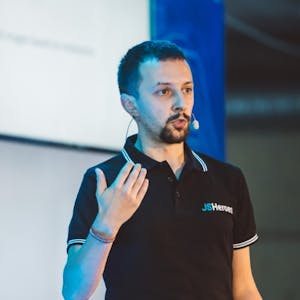Reading was a big help for me. Consume curated content from sources like epicreact.dev, testingjavascript.com, newsletters, podcasts, and more. Learn from others through water cooler chats, listening to engineers, open source projects, Stack Overflow, Twitter meetups, and conferences. Everyone learns differently, so apply different consumption methods based on your learning style. Once you've consumed enough information, start building.
And so I would read these books and fill my mind with tons of information. So this is one tip I actually don't read anymore, like at all, but this was really useful to me as I was just getting started into software development. And what it did for me was it exposed me to lots of different ideas that I never even considered, things that I didn't know, and it helped me get an idea of what was possible with this amazing thing that we call technology and writing software.
So reading was a big help for me. In general the idea is I want you to consume curated content. So things like epicreact.dev and testingjavascript.com, but also newsletters from Peter, awesome person, and ui.dev, that Bytes stuff, and then we've got React podcast. So podcasts, I've got my own newsletter, so I'll send you blog posts that I write. And then we've got Syntax FM. So really it's just consume as much information as you can. And what this does is it exposes you to what's possible, to the things that people are doing, to the opportunities and in particular with Epic React and testing JavaScript, I hope that it not only exposes you to what's possible, but also gives you the exercises and the tools that you need so that you can go beyond just consuming and actually building and even teaching. And I'll talk a little bit more about those aspects here in a little bit. But just in general, just fill your mind with what is happening in the ecosystem and what's possible with software.
So learn from others, water cooler chats, or during the pandemic, maybe Discord is a more appropriate place to just hang out and lurk a little bit, see what other people are talking about. When I was first getting into software, I worked at a company called Domo. I was actually still in school. And I would just listen to the other engineers in the building talking about the problems that they were facing. And I learned a huge amount of things from that. Maybe I didn't dive in deep, but I at least got an idea of what types of problems people are facing and what are the buzzwords that they're using that I can go and look up later. So yeah, pay attention to what other engineers are talking about, and then you can just have that kind of at the surface level of your mind so you can dive in deeper later. Open source is a huge opportunity for learning. So that's another area where you can just watch a repo and see how people solve different problems. You're not actually getting anything that you can maybe apply right away, but it's exposing you to different ways of thinking about problems. Even Stack Overflow, Twitter meetups, conferences, this is how we can learn from other people. George Evans once said, every student can learn, just not on the same day or the same way. So we have lots of different ways that we learn, and I would also suggest to you that you're not just a single-dimensional learner either. You learn from different mechanisms and different concepts, you learn in different ways. So maybe you think that you're a visual learner or you're a hands-on learner. No, you're actually both, and so you're going to want to apply the different consumption methods at different levels. You'll have your own recipe for consuming information and learning. So once you've consumed enough information, then you want to go out and build something.






















Comments